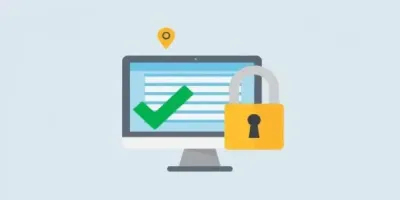Check SSL Certificates Online
SSL certificates are the foundation of a secure web. They encrypt traffic, authenticate ownership, and protect data transmission between users and websites. Whether you run a personal blog or manage an enterprise platform, keeping your SSL certificates valid and properly configured is crucial for security, trust, and SEO.
With our SSL Checker Tool, you can instantly analyze the health, validity, and configuration of any SSL/TLS certificate—no downloads or technical skills required.
What Is an SSL Certificate?
An SSL certificate (now commonly referred to as TLS) is a digital certificate that encrypts communication between a website and its users. This ensures that sensitive data—like passwords, credit card details, and personal information—is transmitted securely and cannot be intercepted by attackers.
Modern browsers display a padlock icon when a website uses HTTPS, indicating that it has a valid SSL certificate. If not, users receive a warning, which can damage your reputation and impact SEO rankings.
Why You Should Regularly Check SSL Certificates
SSL certificates are not a "set it and forget it" solution. Misconfigurations or expired certificates can:
- Break access to your website
- Trigger browser security warnings
- Damage user trust and credibility
- Negatively affect search engine rankings
That’s why regular auditing is critical. Our SSL Checker makes this simple and fast.
What You Can Learn from the SSL Checker
Just enter any domain (e.g. example.com) into our SSL Checker Tool to retrieve:
- Certificate Issuer: Which Certificate Authority (CA) issued the certificate (e.g., Let's Encrypt, DigiCert)
- Domain Coverage: Domains/subdomains covered by the certificate (e.g., wildcard or SAN entries)
- Start and Expiry Dates: Ensure certificates are valid and not nearing expiration
- Certificate Chain: View the full trust chain (leaf, intermediate, root)
- HTTPS Status: Whether the domain properly serves the certificate
- Common Name (CN): The primary domain the certificate is issued for
All this is presented in a clean, easy-to-understand interface, accessible from any browser.
How to Use the SSL Checker Tool
- Visit Weblaro's SSL Checker.
- Enter the domain you want to test (e.g.,
yourwebsite.com). - Click “Check SSL.”
- View a complete report of certificate details, status, and expiration.
No login or technical knowledge needed—it works instantly from any device.
When to Use an SSL Checker
- Before Launching: Validate SSL setup after deploying a new site
- Renewal Checks: Confirm the new cert is live after renewing
- Multi-domain Validation: Verify SAN or wildcard certificates
- Migration: Ensure SSL is properly configured after changing hosts or CDNs
- SEO Monitoring: Google penalizes insecure sites—SSL misconfigurations affect rankings
How SSL/TLS Affects SEO
Google officially uses HTTPS as a ranking signal. Sites without SSL may appear lower in search results and receive warnings in Chrome and other browsers. Additionally:
- Page Experience: HTTPS is part of Google’s Core Web Vitals ranking factors
- User Trust: Sites without a padlock icon suffer lower engagement
- Referral Data: Only HTTPS preserves referral header data across analytics platforms
Maintaining a secure SSL setup is now a standard part of every SEO checklist.
Tips to Maintain a Healthy SSL Setup
- Use short validity periods (90-day certs) and automate renewals where possible
- Enable HSTS (HTTP Strict Transport Security) to force HTTPS
- Redirect all HTTP traffic to HTTPS
- Secure all subdomains with wildcard or SAN certificates
- Verify the complete certificate chain (leaf → intermediate → root)
Bonus: Troubleshooting Common SSL Issues
Our SSL Checker helps identify common problems like:
- Expired Certificates
- Hostname Mismatch
- Untrusted Certificate Authorities
- Incomplete Certificate Chain
- Missing or incorrect SAN fields
All results are displayed in a user-friendly format with actionable insights.
Conclusion
SSL certificates are not optional—they’re essential for running a secure and professional website. Whether you're auditing your own domain or verifying a client’s setup, our free SSL Checker Tool is the easiest way to analyze certificate health, expiration, and configuration in seconds.
Use it regularly to catch issues before your users or Google does.
🔒 Check your SSL now: https://weblaro.com/tools/ssl-checker

Comments